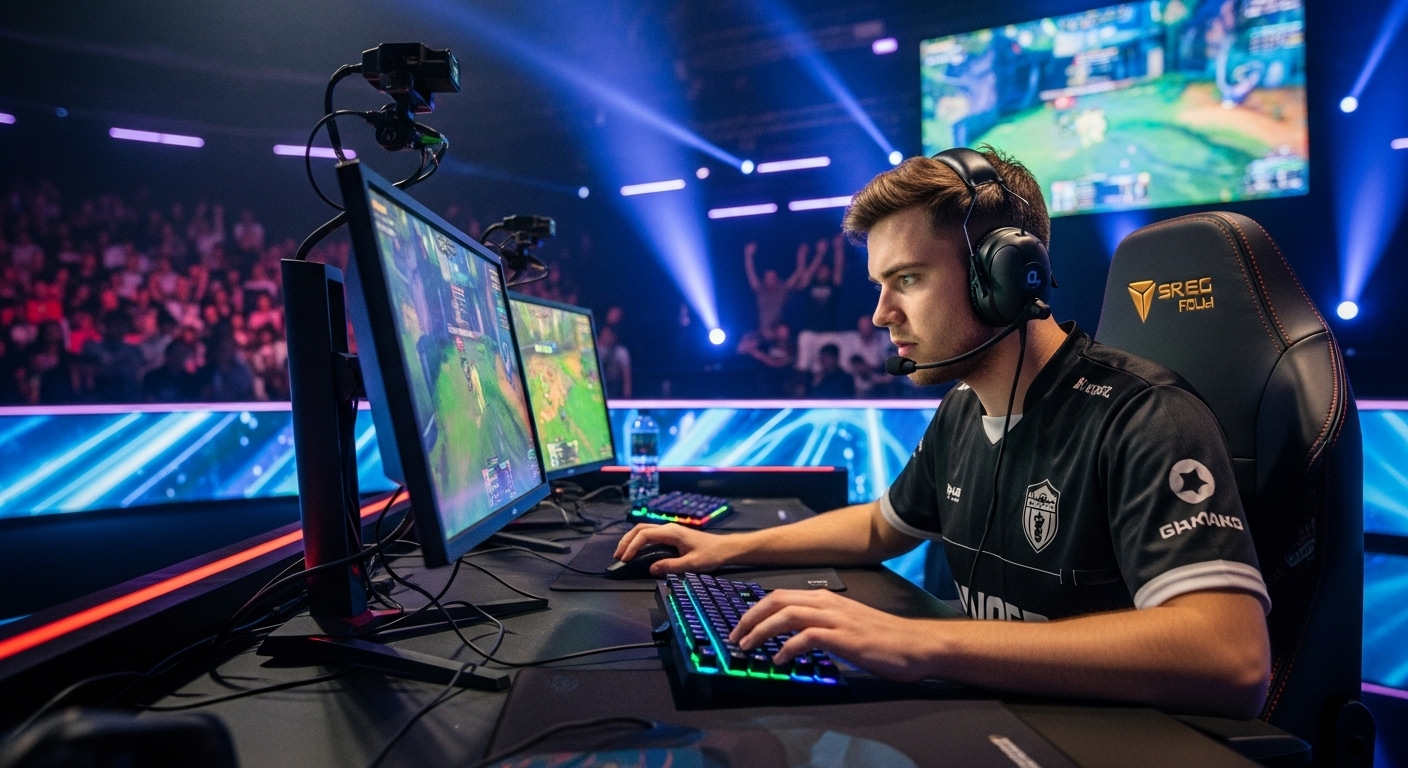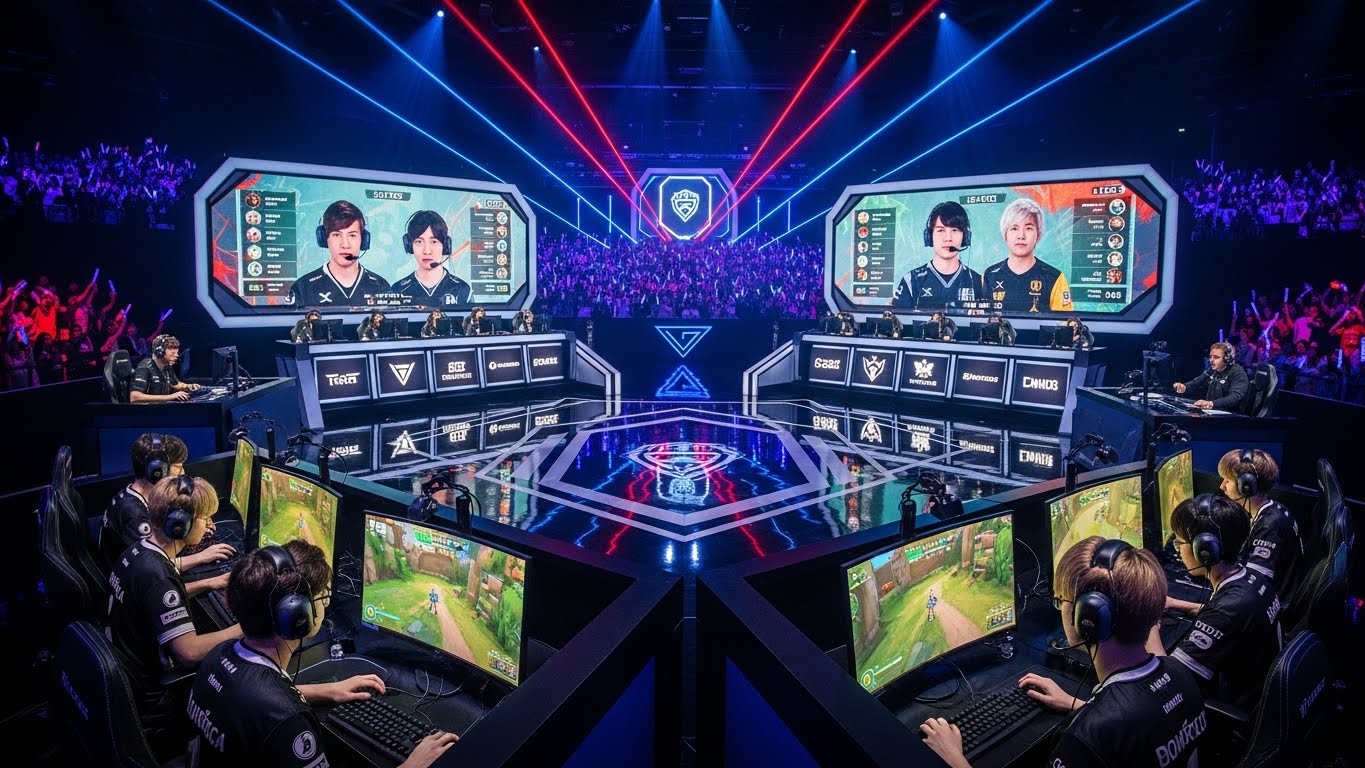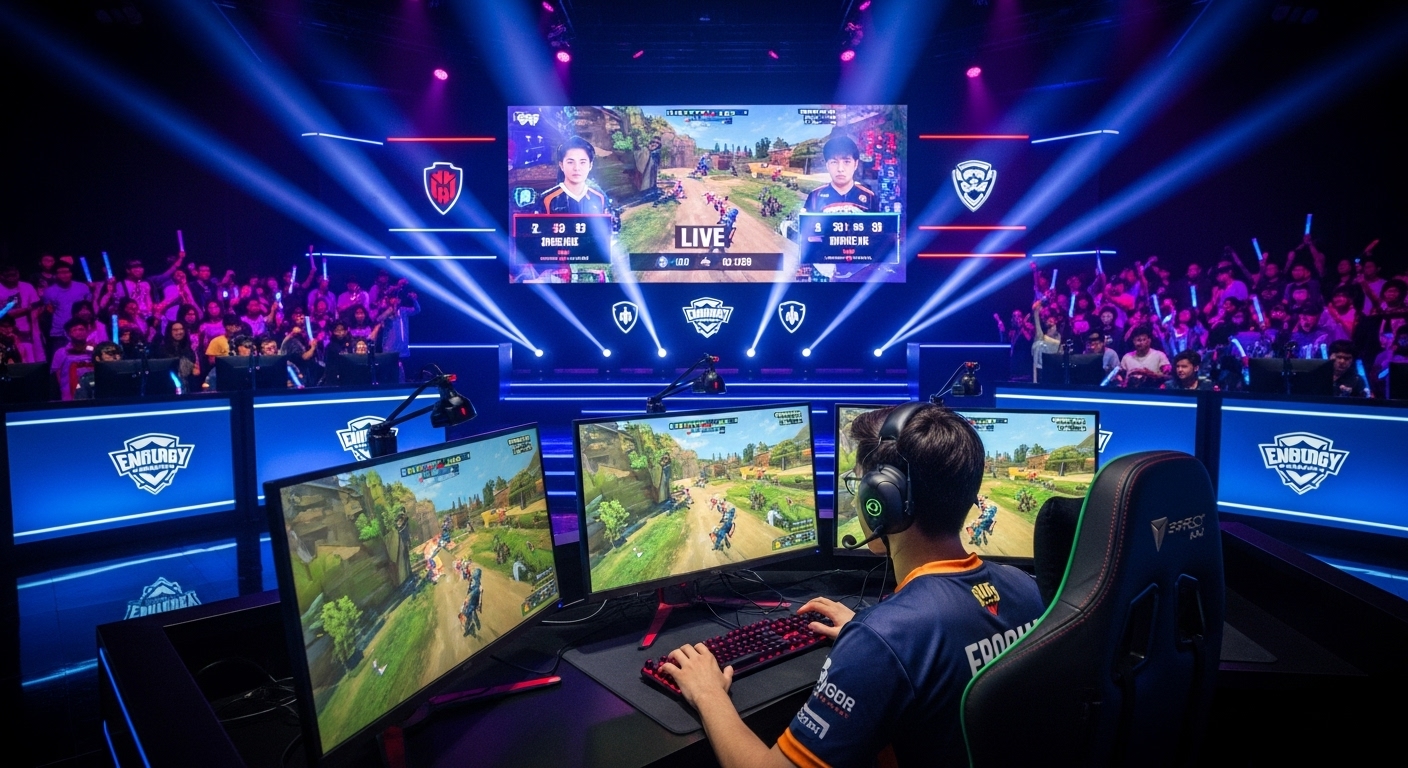Introduction
Esports has grown into one of the most influential and exciting forms of entertainment in the digital age. Once viewed as a niche hobby, competitive gaming now attracts millions of players, fans, and investors worldwide. It blends skill, strategy, teamwork, and technology, creating a professional and highly engaging environment. Beyond just playing games, esports is shaping culture, careers, and the way we experience competition.
The Origins of Esports
The journey of esports began with small, informal gaming competitions in arcades and early online platforms. As gaming technology advanced, these competitions evolved into structured tournaments with organized teams and professional rules. Titles across genres such as strategy, first-person shooters, and multiplayer online battle arenas became staples of competitive play. Today, esports has grown into a global industry with professional leagues, major tournaments, and millions of viewers tuning in from around the world.
Life of a Professional Gamer
Professional esports athletes train with the same intensity and discipline as traditional sports players. Success requires exceptional reflexes, strategic thinking, teamwork, and mental endurance. Daily schedules often include hours of practice, strategy analysis, and coordination with teammates. The dedication of professional gamers demonstrates that esports is not just a hobby—it is a career that demands focus, resilience, and continuous improvement.
Technology Driving Esports
The backbone of esports is technology. High-performance gaming systems, fast internet connections, and advanced software ensure seamless gameplay and fair competition. Streaming technology allows global audiences to watch matches live, connecting fans with players in real time. Emerging innovations such as virtual reality, augmented reality, and artificial intelligence are pushing the boundaries of esports, creating more immersive and dynamic experiences for players and viewers alike.
Community and Cultural Influence
Esports has created a vibrant global community where players and fans connect regardless of location. Online platforms, tournaments, and live events foster collaboration, rivalry, and shared experiences. Beyond gaming, esports influences fashion, music, and social trends, demonstrating its role as a cultural phenomenon. It brings people together, creating a sense of belonging and shared passion for competitive play.
Economic Impact of Esports
Esports has become a significant economic force. Sponsorships, advertising, merchandise, and media rights generate billions in revenue annually. Educational institutions now offer esports programs, providing scholarships and career opportunities in coaching, game development, event management, and content creation. This growth highlights esports as a sustainable industry with long-term professional and financial opportunities.
The Future of Esports
The future of esports is full of potential. Advancements in technology will make gameplay more immersive, fan experiences more interactive, and global participation even broader. As esports continues to gain recognition alongside traditional sports, professional opportunities will expand, and international tournaments will grow in scale and popularity. The evolution of esports points toward a future where digital competition is an integral part of entertainment and culture.
Conclusion
Esports is not merely a form of digital play—it is a revolution in competition, culture, and technology. It challenges players, connects communities, and inspires innovation on a global scale. From local tournaments to international championships, esports demonstrates the power of gaming to influence careers, culture, and entertainment. In the digital era, esports has leveled up reality, proving that competitive gaming is here to stay.




